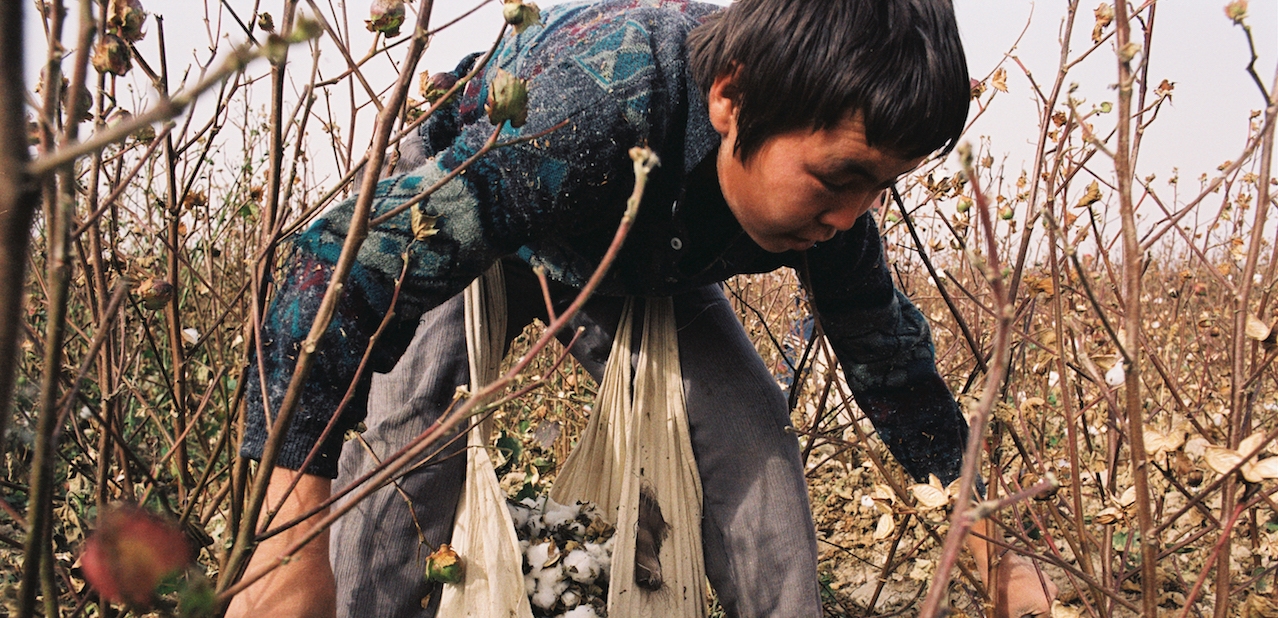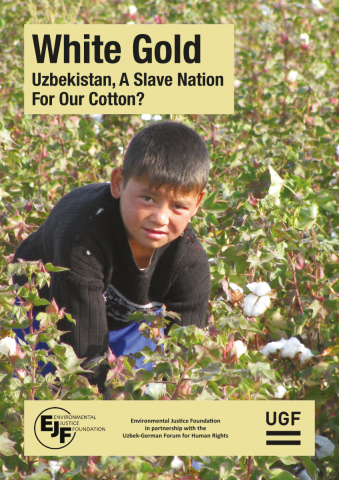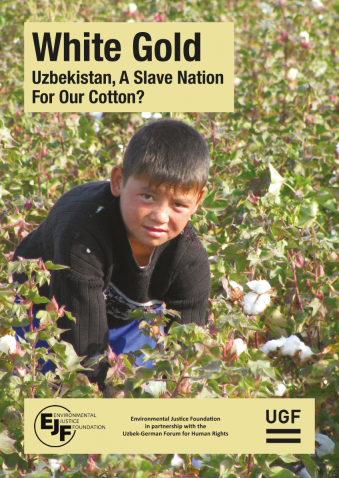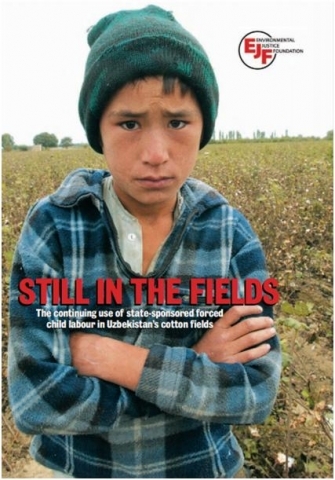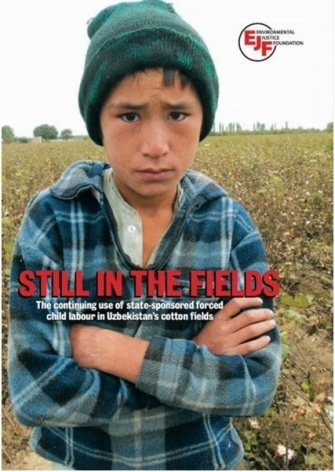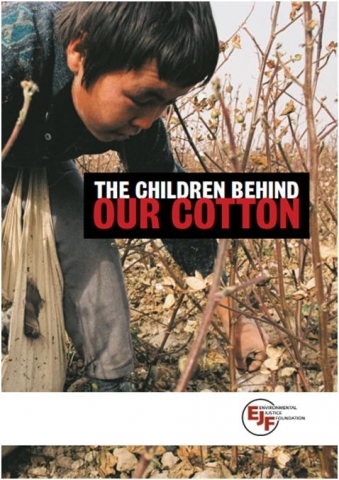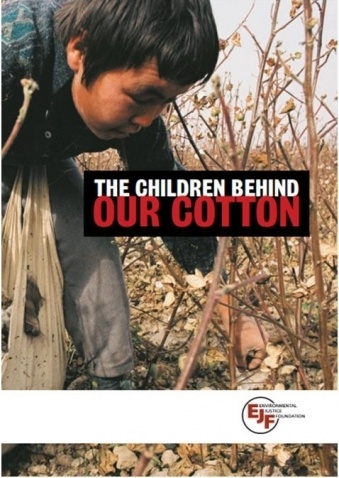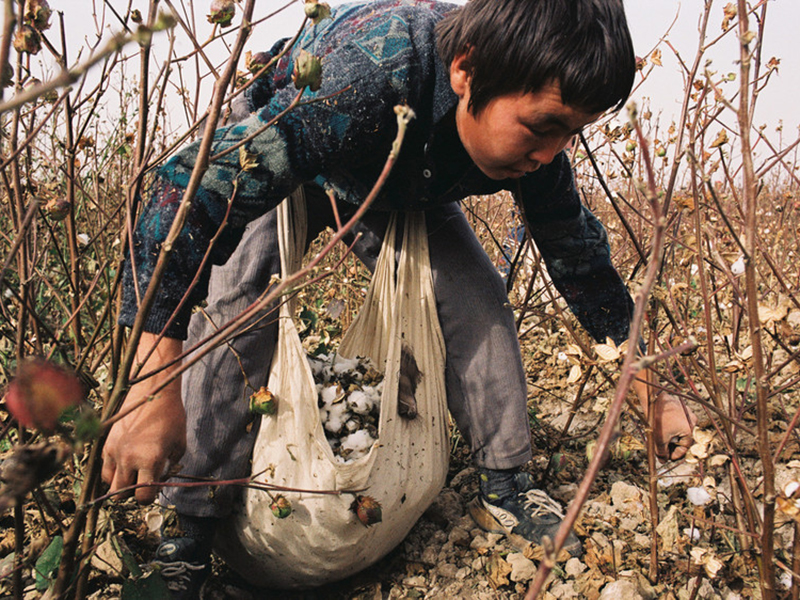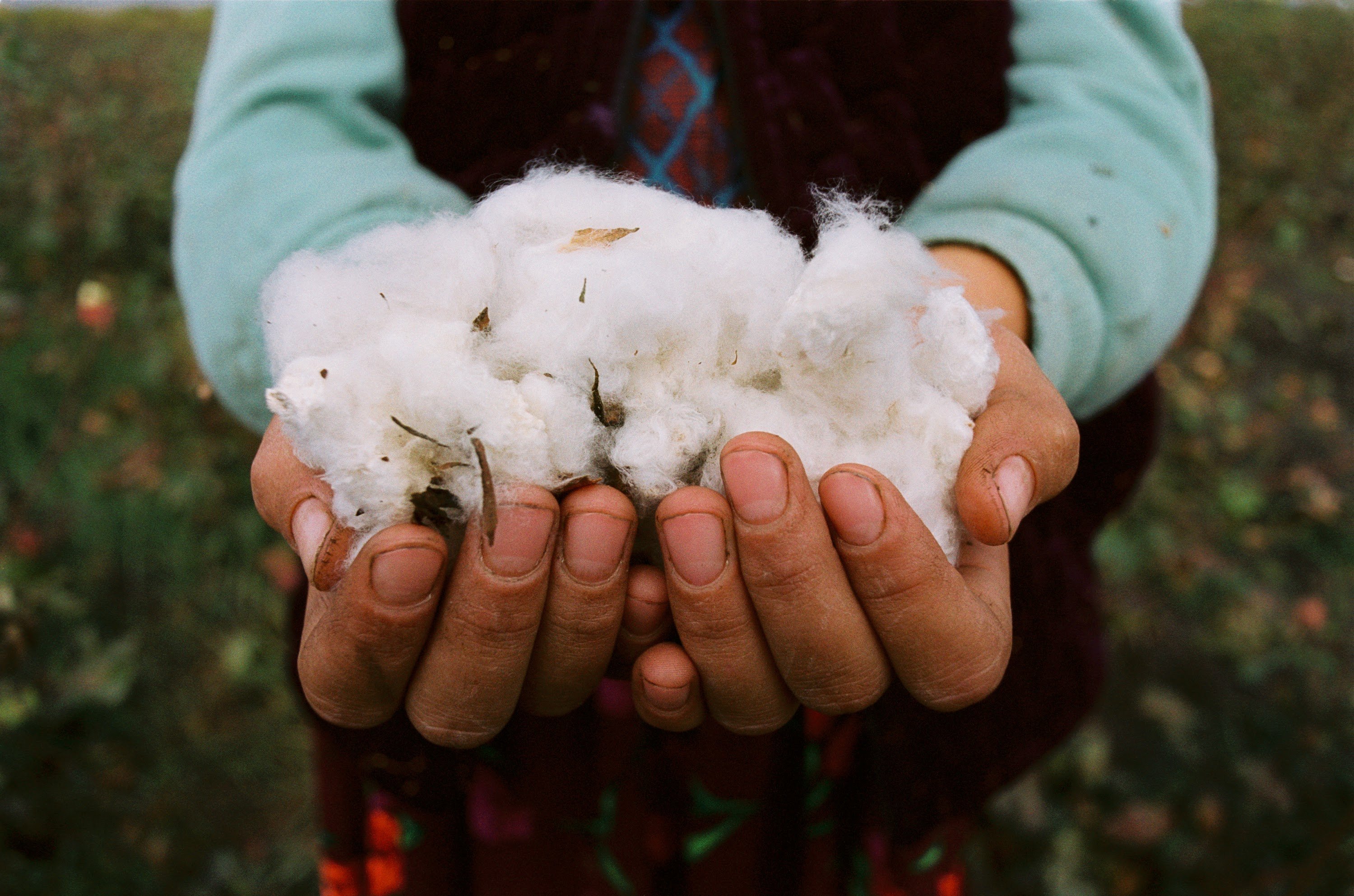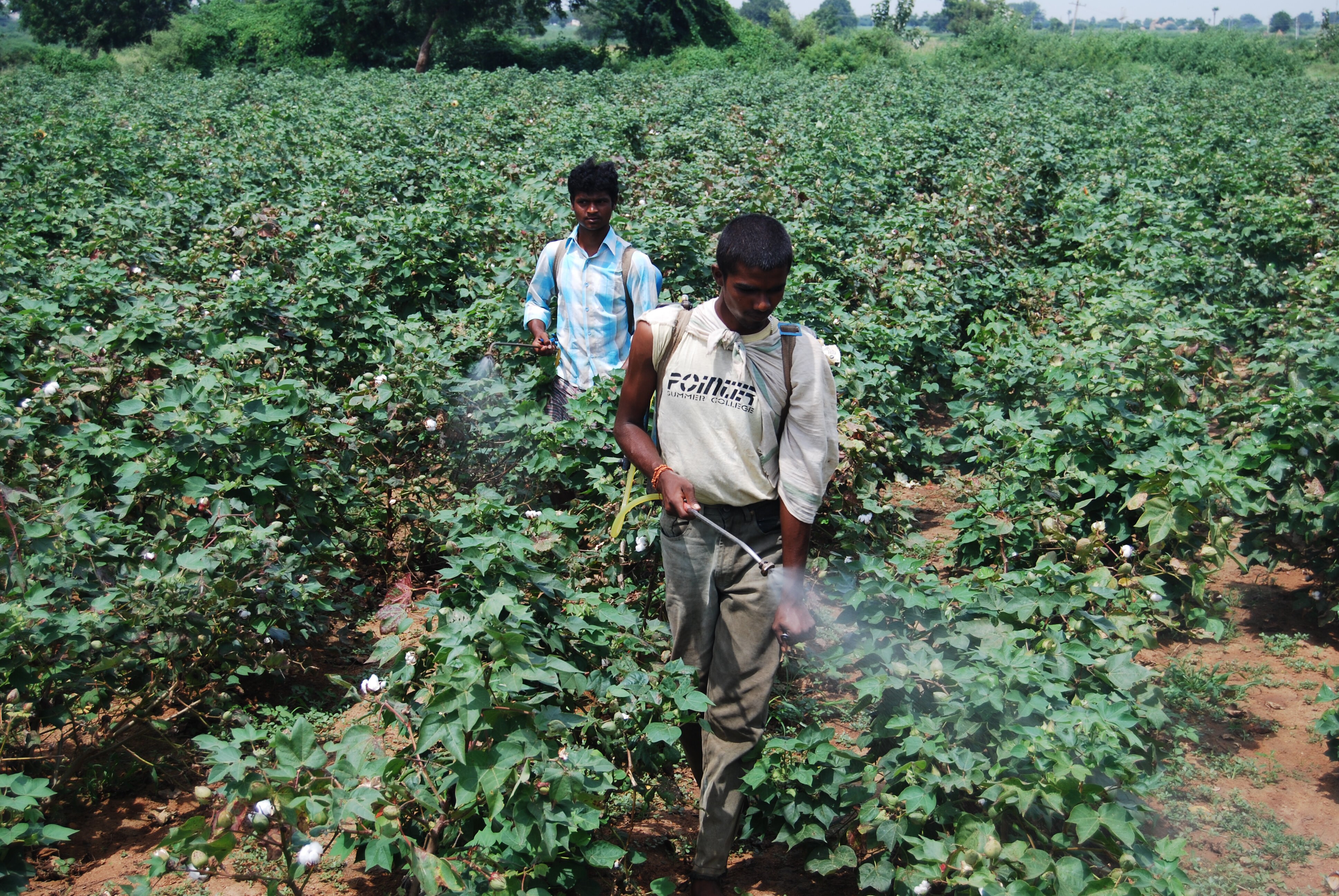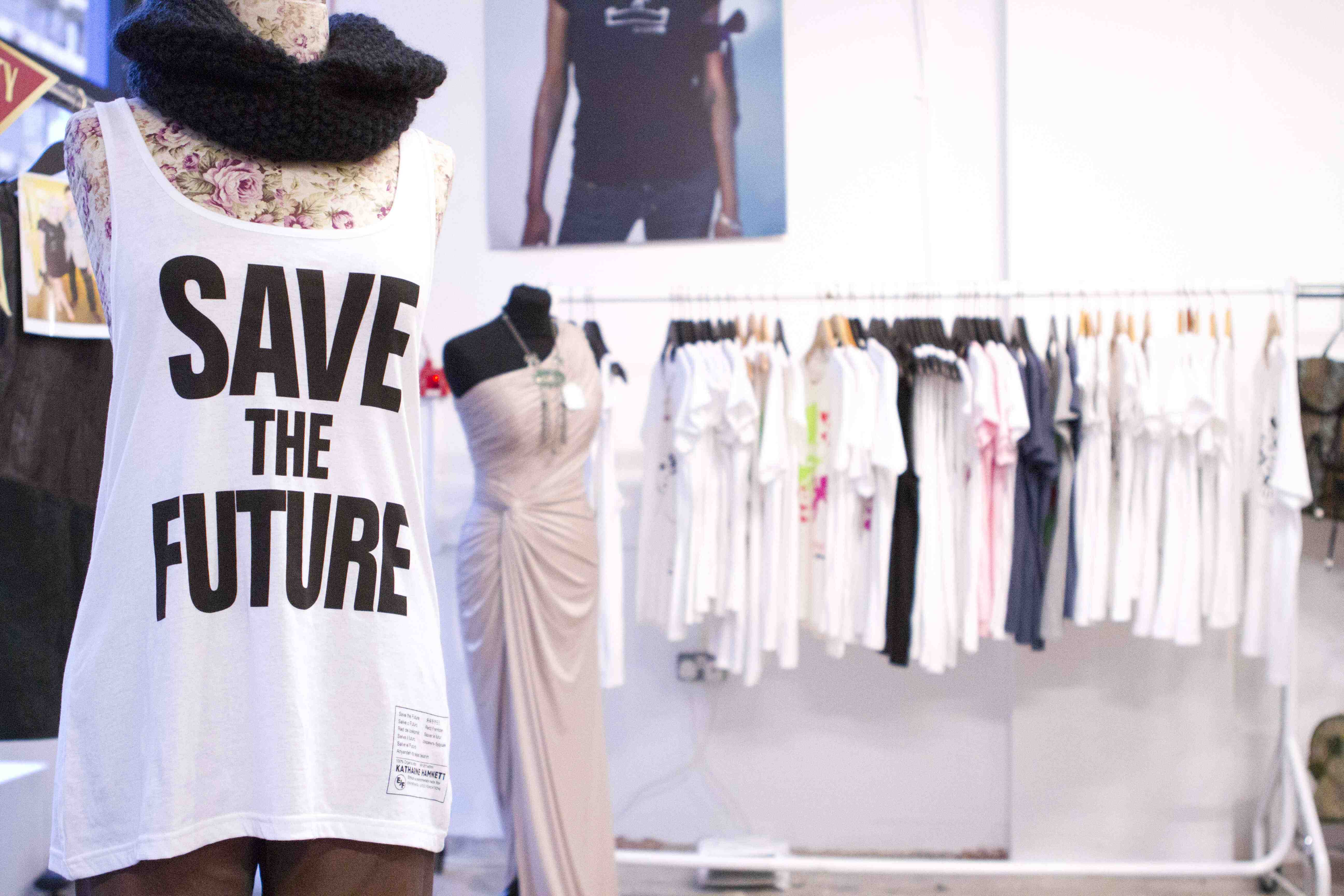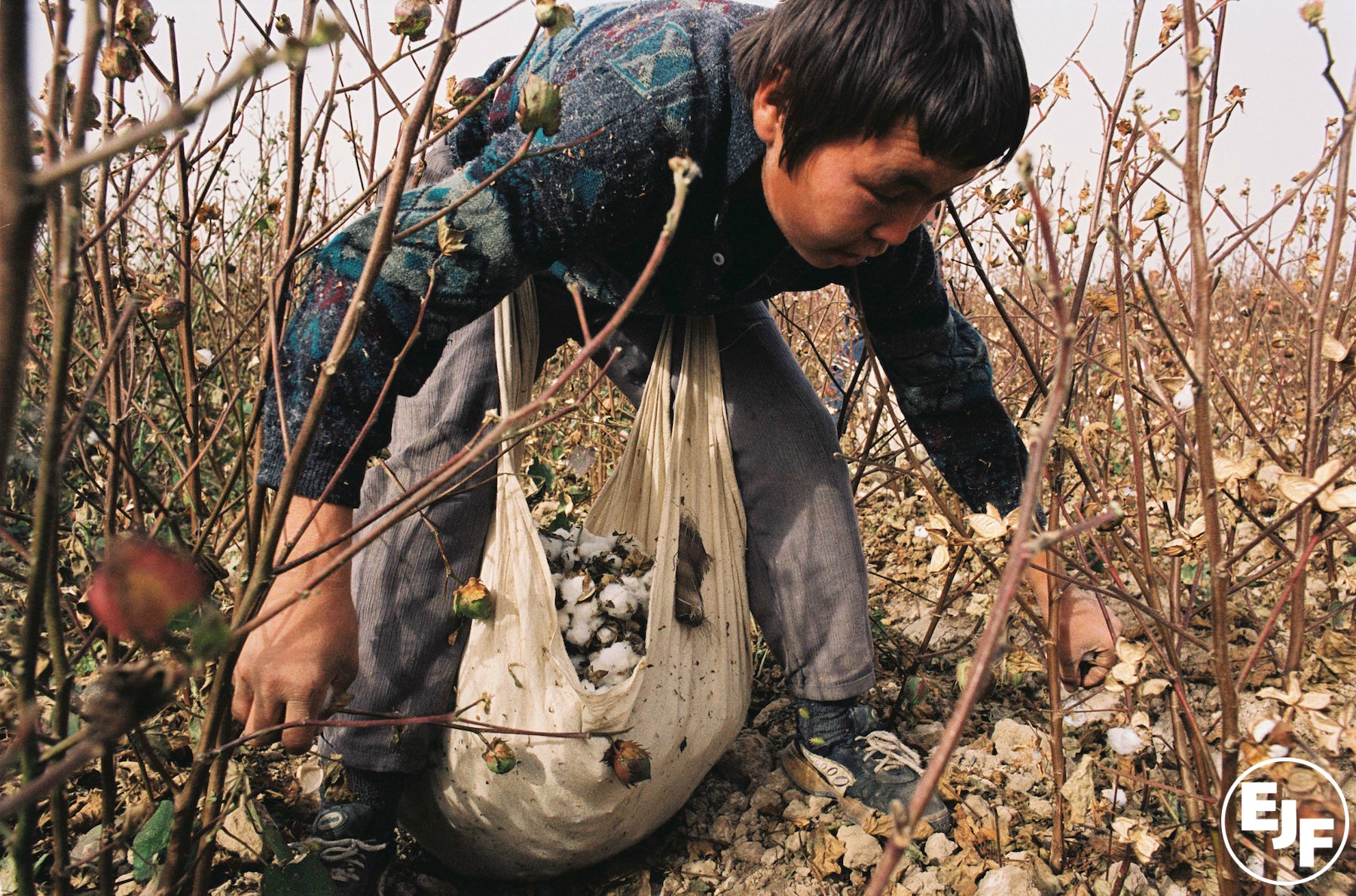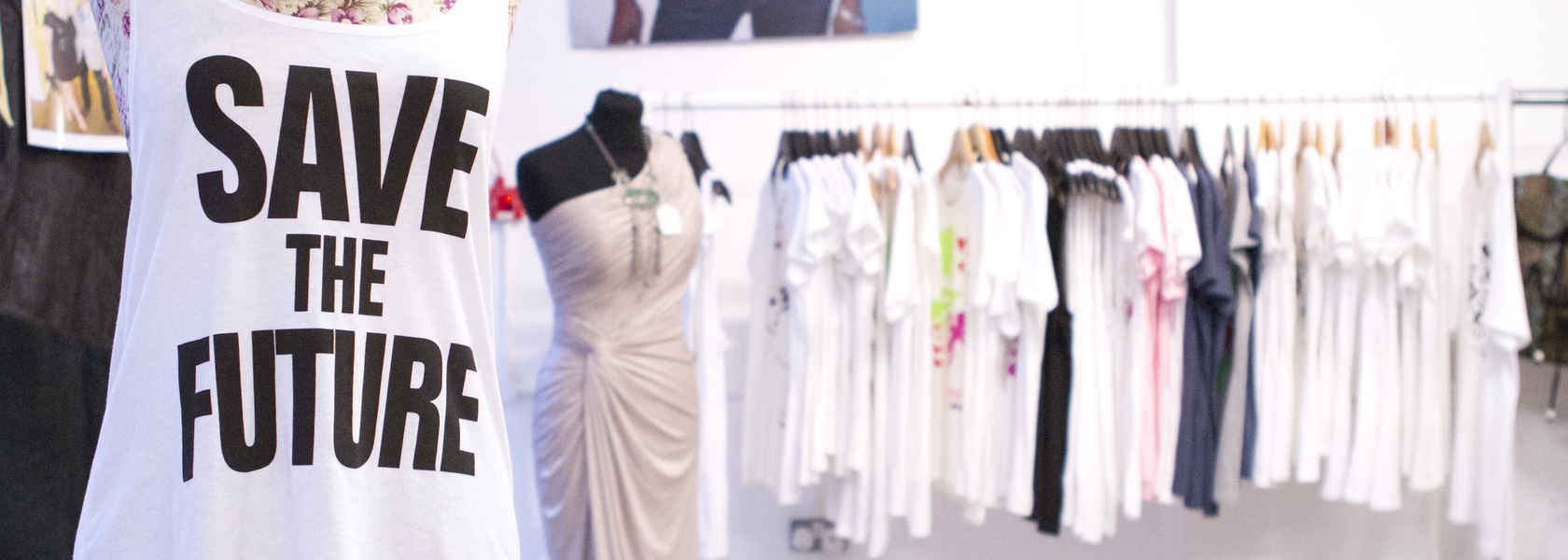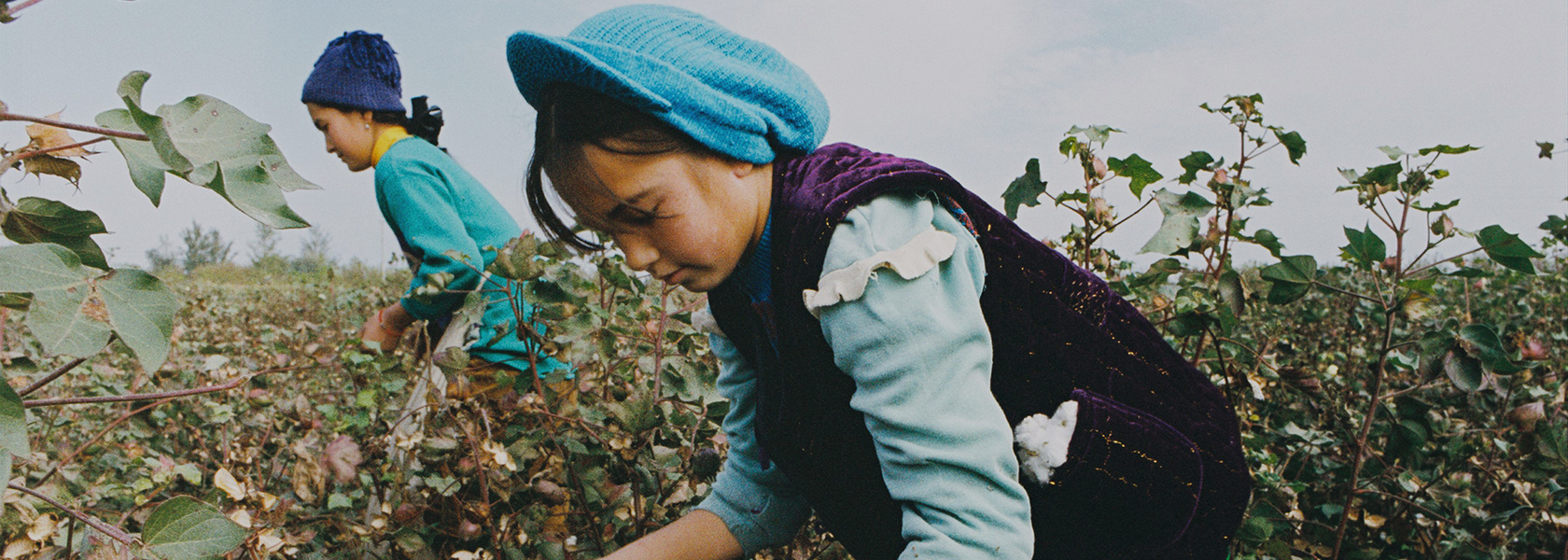Uzbekistan - a 'poster child' for a harmful industry
EJF first entered Uzbekistan in 2005. What we found there was one of the most exploitative enterprises in the world.
Each year, the country’s billion dollar cotton industry was responsible for massive environmental destruction - including the draining of the Aral Sea - and was being propped up by state-controlled forced, child labour.
EJF investigators documented children as young as seven handpicking the cotton for days on end; they were doing this not to help their parents’ meagre income on family farms, but because the brutal and corrupt government shut schools across the country and compelled children to labour in the fields. Beginning in the sweltering heat of late summer and ending as the first snows of winter set in, these children were forced to undertake back-breaking work in harsh conditions for little or no pay.
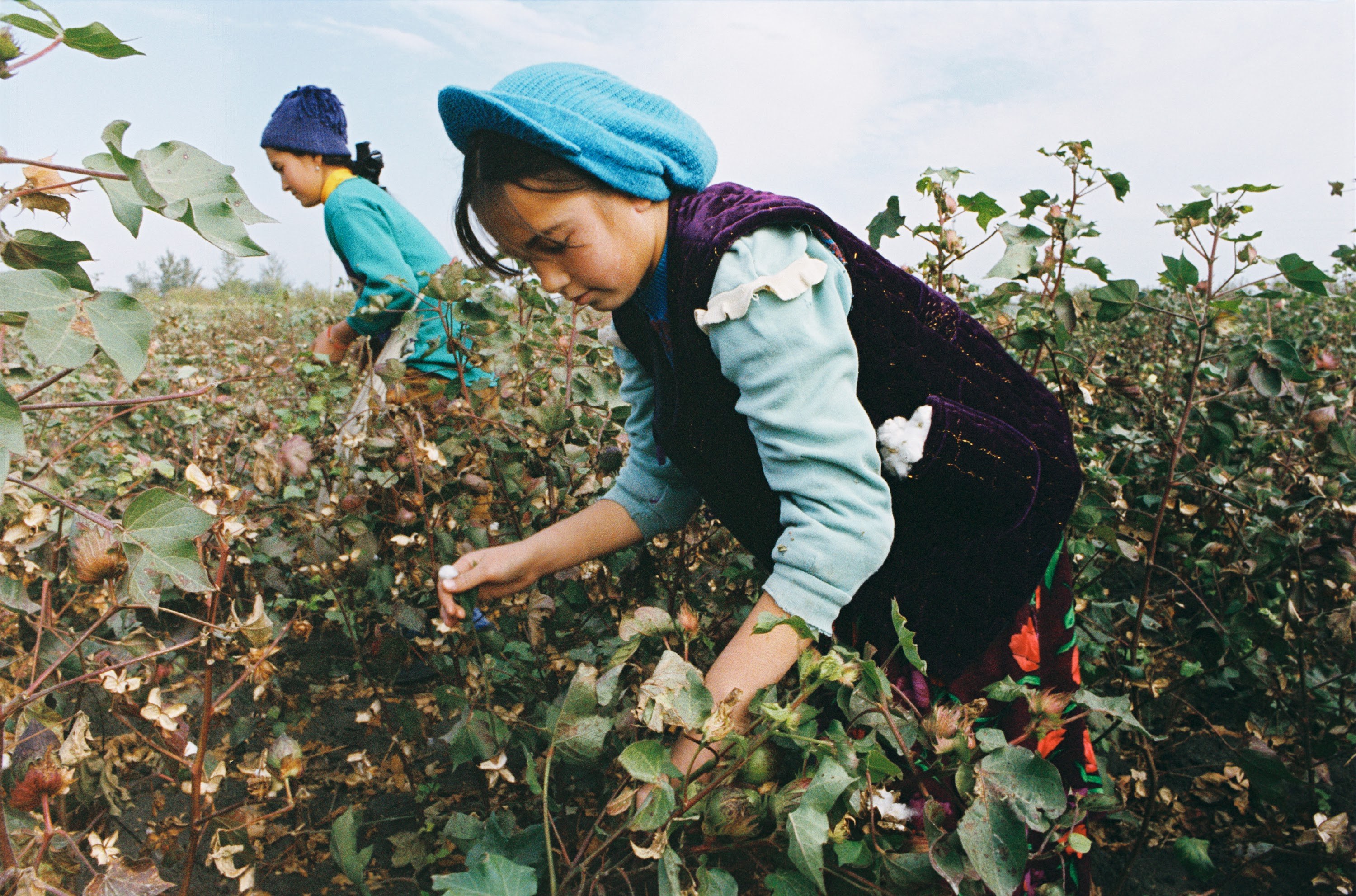
Cotton and the Aral Sea
Only 60 years ago, the Aral Sea stretched across an area of 66,000 km2 and was surrounded by smaller lakes, marshes and wetlands. In just a generation, it has shrunk to 10% of its former volume. The primary source for this ecological catastrophe was the push for export-driven cotton production. In Uzbekistan, almost 20,000 litres of water were withdrawn for every kilogram of cotton harvested.
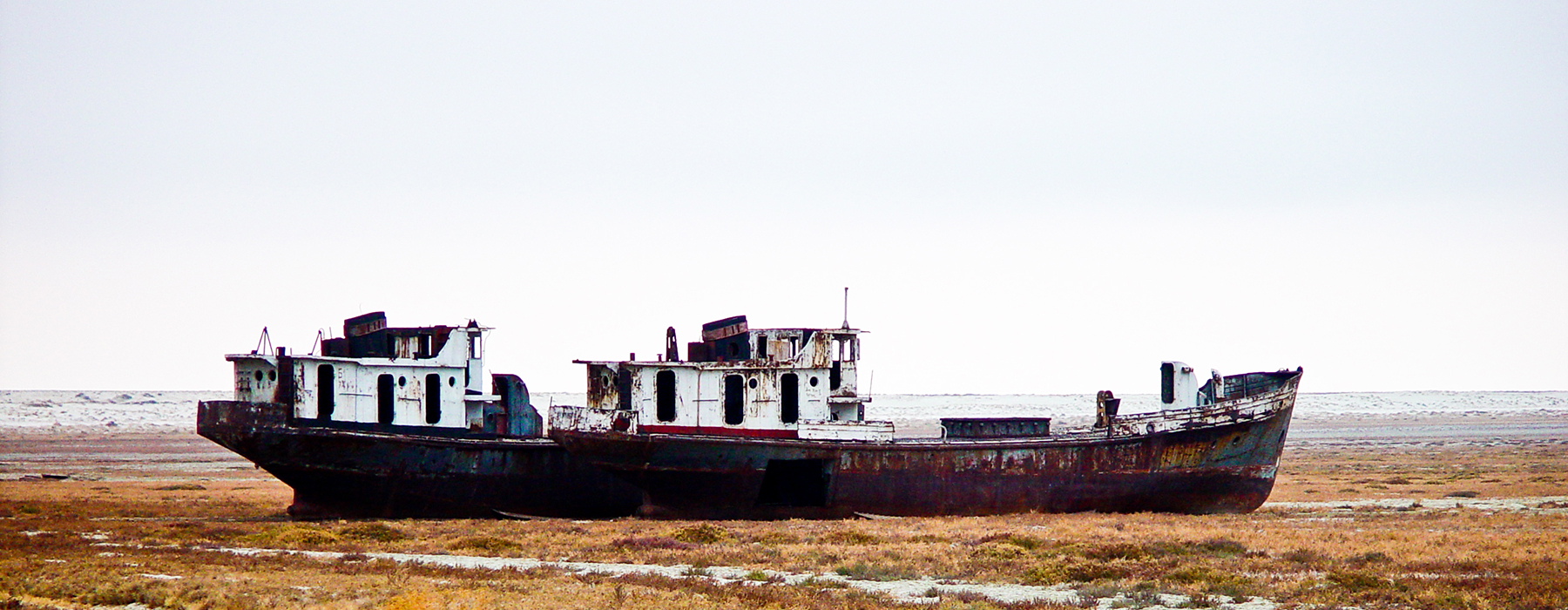
Award-winning investigations
In our 2006 report, White Gold: the True Cost of Cotton, and award-winning film of the same name, we shone an international spotlight on the Uzbek government’s routine use of forced labour. Our campaign, focusing on a nation infamous for its brutal regime and flouting of human rights laws, quickly bore results.
Substantial media coverage in the UK prompted Tesco and Marks and Spencer to declare a stance on the abuses, resulting in a boycott of Uzbek cotton. Other major brands quickly followed suit, and an influential international campaign uniting business with labour and human rights organisations got underway. For the first time, the problem of opaque supply chains hiding forced child labour was given massive public attention.
What soon became the Uzbek Cotton Pledge was ultimately signed by 331 global brands and retailers.
In 2008, the Uzbek government signed two International Labour Organization (ILO) Conventions on child labour. EJF’s follow-up investigative report, Still in the Fields, revealed that, despite signing the conventions, the Uzbek government was still using child labour in cotton fields.
Under scrutiny from EJF, NGOs and business, the Uzbek government promised to curtail the use of child labour.
Although now free of government-imposed child and forced labour, problems persist in Uzbek cotton production. Responsible sourcing that ensures labour rights for cotton workers in Uzbekistan and beyond is needed to protect people against abuses across the production process. EJF will continue working to secure transparent supply chains and greater support for sustainable fashion.
SIGN UP FOR OUR EMAILS AND STAY UP TO DATE WITH EJF
